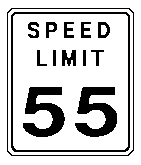I've been retired from law enforcement for a couple of years, and before retirement it had been several years since I worked traffic. But I can tell you that when I did work traffic, to my knowledge all 50 (or was it 57

) states had a reciprocity agreements where they honored the other states licenseing laws, whether it was on the vehicle or the drivers license. Here in MO, trucks are licensed by the weight-6,000, 12,000, 18,000, etc. below 18,000 you are issued 2 license plates, one for the front & one for the rear. Trucks that are licensed 18,000 and above are only given 1 license plate and it must be put on the front. So far I haven't been stopped because of this, but I'm waiting. Also 5th wheel trailers can have a permant tag that is only good for that trailer while you own it, so if we get another 5er we'll have to get a new tag.
Some law enforcement agencies give their officers a booklet with each states licenseing information yearly, some officers obtain their own. If an officer doesn't have that info in the car with him, he can always radio the dispatcher and have them obtain the info either from their own state's highway patrol, or call the state in question to get the information.


